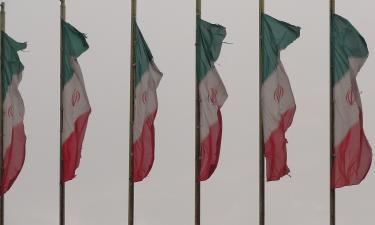Can Russia really benefit from its debt relief policy?
The situation looks rather strange: Russia has been writing off millions in debt owed by third-world countries. In the meantime, nobody wants to consider the possibility of canceling Russia’s foreign debt. Russia has been paying off hundred of billions in foreign debt which also includes funds owed by all other republics of the former Soviet Union. As a rule, officials use the following pretext for canceling debts: “They won’t pay it back anyway because those are the insolvent countries.” Who are responsible for such an assessment? Can the government simply impose a freeze on debts while waiting for the debtors to become solvent?

Estimating the amount of debt owed by a particular country to Russia has been a real pain in the neck for the Russian economists over the last ten years. In 1997, the Paris Club of creditors formally accepted Russia, and a debt restructuring boom followed shortly after. Russia received both its debtors and creditors by inheritance from the Soviet Union. The Paris Club used the Soviet-era foreign exchange rate (1 U.S. dollar equals 62 kopeks) for adjusting the total amount of debts owed to the Russian Federation by other countries. As a result, Russia was entitled to receive $145 billion. However, the majority of 54 countries owing money to Russia plainly refused to acknowledge any debts. Consequently, the above amount ended up as imputed. The international norm which allows excluding arms and equipment supplies from a country’s national debt was cited by the debtors to justify their refusal to acknowledge the debt. Besides, most loan agreements were either never formally concluded or the payment was agreed on the terms of a barter deal e.g. a debtor was to pay by supplying consumer goods or bananas.
It should be noted that Russia’s foreign debt totaled $140.6 billion as stipulated in the 1998 budget. The amount was smaller than that owed to Russia by its satellites (those formally independent yet heavily dependent on Russia in terms of financing).
The question is: Why did not Russia and its debtors agree to carry out a cross-cancellation of debts? For instances, Russia and Poland forgave each other’s debts (with a “slight error” amounting to $20 million) following the demise of the Council for Economic Cooperation. It is understood that the option cannot be accepted by all countries. By and large, Russia’s debtors cannot be considered as creditworthy. On the other hand, Russia owes money to industrially developed capitalist countries of the West.
Debt trade is another option, but who is willing to buy? So far the Russian government has only succeeded in trading some small-scale debt claims (e.g. Nigeria’s debt to Russia) to a third party. However, debt trading is akin to a write-off because the seller’s commission is next to nothing. Only the officials who took part in talks and signed agreements are privy to the details of those deals.
“Dealing in debt obligations is a very profitable business for lots of people. No wonder accounting reports pertaining to debt relief look pretty complicated,” said Valery Egozaryan, head of the Center for the Study of International Relations under the Institute of Public Planning. “In terms of the total amount of debts written off, Russia is the world’s third biggest debt reliever, after Japan and France,” Egozaryan added.
Prior to writing off a debt, a small reminder of it is normally placed with Russia’s accounts in local banks on the condition that money will be invested in the economy of subject country. It is up to the Finance Ministry to handpick those who will have access to the money. Rumor has it that estimates are often overstated twice as much to pay off an official who makes a decision in favor of a certain company.
Some people believe that the government should try to make the most of a debt relief program to gain all sorts of dividends, political or otherwise, in case a write-off isunlikely to pay economic dividends. “We’ve been admitted to the G8, and therefore we’re not only supposed to be on board, we should also carry some financial load on our shoulders. For instance, we should help out the poorest countries,” said Evgeny Yasin, scientific head of the Moscow-based Higher School of Economics.
Russia canceled 90 percent of Nicaragua’s debt several years ago. Then Russia wrote off a larger part of Ethiopia’s debt, which totaled $4.8 billion. The remaining part ($160 million) is to be paid by installments over the period of 30 years. Russia also wrote off the debts of Mongolia and Vietnam. Kyrgyzstan recently requested Russia for the cancellation of debt.
“It’s good that foreign countries repay their debts to Russia by making concessions in other areas. The debtors allow Russia to deploy its military bases on their territory; they allow the Russian aircraft to fly their airspace too. For example, the Syrian government allowed the Russian navy to lie in Syria’s ports,” said Leonid Ivashov, vice president of the Academy for Geopolitical Studies. According to information released by the Center for Problem Analysis and State Management Planning, Russia canceled nearly $10 billion of Syria’s debt on condition that the first half ($1.5 billion) of the remainder is paid in U.S. dollars and its second half ($1.5 billion) is placed in a state-controlled Syrian bank to invest in joint economic projects. Stroitransgas would lay a pipeline. Tatneft reportedly signed an exploration and concession contract for two Syrian oil fields. Incidentally, shortly after the media began spreading rumors about Russia’s plans to cancel 100 percent of Syria’s debt, Libya requested that Russia write off its debt too. Otherwise, we would stop buying Russian arms and equipment, said the Libyans.
According to estimates prepared by the Center of Financial and Banking Studies under the Russian Academy of Sciences, 42 countries were in debt to Russia to the amount of $66.5 billion as of January 1, 2006. Cuba’s debt to Russia is the largest one in the category. It is also the most difficult debt to settle. Cuba has never acknowledged its debt to Russia. Cuba’s stance on the issue remains unchanged. Both Afghanistan and Iraq never paid their debts to Russia either. Eventually, the two had their lucky day last year as Russia agreed to unconditionally write off their debts. Perhaps Russia canceled Afghanistan’s debt as if to make up for the ten years of the Soviet occupation of that country. But why on earth did Russia cancel Iraq’s debt? Iraq is a country that is currently occupied by foreign troops. Russia had undoubtedly planned to take part in the development of certain oil fields in Iraq. However, Iraqi finance minister recently said that Russian oil companies would receive no preferential treatment from the Iraqi government.
In the past, the Soviet Union had to agree to a number of “special terms” while signing loan agreements with the West. For instance, the Soviet Union withdrew its troops from Germany, Afghanistan, and Cuba. The Soviet Union also signed the START-1 and START-2 treaties, and stopped sending funds and arms to anti-American guerilla movements in Latin America. Besides, Russia has been paying off every penny of the debt incurred by the Soviet Union. One can hear the government officials proudly announce that Russia has been allowed to repay its debt early, thus saving on interest. However, experts stress the point that the Paris Club creditors made loans to Russia at 7 percent interest per year, whereas the Soviet Union, the notorious “evil empire,” received loans at 1.5-2 percent interest per year. It is worthy of notice that the national debt of the Russian Federation accounts only for 1.5 percent of the country’s foreign debt. The remaining 98.5 percent of the debt is owed by banks and companies.
Argumenty i Fakty
Translated by Guerman Grachev
Subscribe to Pravda.Ru Telegram channel, Facebook, RSS!




